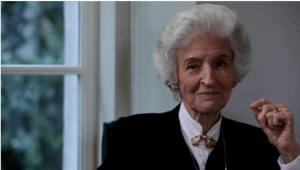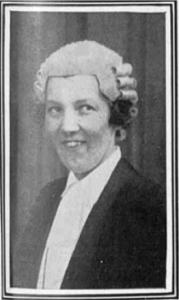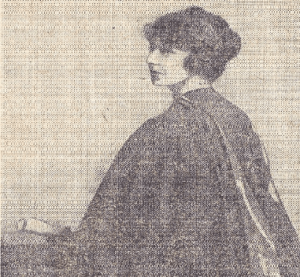Madeleine Heggs set up her own legal practice over 60 years ago. She was brought up by a single mother during the war. After her father was killed, Madeleine went to a school which ‘knew nothing about careers’, and girls were expected to become secretaries, or at best, teachers – if you were very bright. Heggs was the first from her school to study Law, and felt inspired to do so after her father’s old lawyer offered her his old articles. The only girl at her entire law school, she described the experience as ‘lonely’. Madeleine later went on to work for Bedford Lowe.
After living for a time in the US for her husband’s job, Madeleine qualified as a solicitor in 1954, and set up her own practice at her home in Ealing when she was expecting her first child in 1957. Over the next 24 years, she built up a successful practice dealing with residential and commercial conveyancing, probate, civil litigation and family law. Working from home, she was able to take her children to and from school and then meet up and speak to clients at night to make up time. And did her husband help with the kids? “He belonged to that generation where men don’t help” she explains, “he liked his wife going to work, but that didn’t mean that he had to join in the housework, it’s a generational thing.”
In 1975, Madeleine got a letter asking if she’d act as Chairman of National Insurance tribunals, which changed the trajectory of her career. Later, she became a Commissioner; saying to First Hundred Years; “I was appointed in November 1981, and it wasn’t until December 1979 that solicitors were entitled even to act as Commissioners, and there had never been a woman. They were all QCs or Benchers and I was a suburban solicitor… the only woman and practising solicitor amongst 14 men.” FHY’s asked; Are things better for women now than they were? Madeleine believes that they may not be. “I look at my grandchildren and they have enormous pressures”, she says. “You have to do your exams first and then you’ve got to find a traineeship – it’s not easy and it’s very expensive and competitive.” Women are also having to work “colossal hours, which is hard if you’ve got a family.” Madeleine also criticises the lack of legal aid, saying while “a lot of people have rights, they can’t exercise them because they haven’t got the money for it.” Truer words have never been spoken.
Madeleine, who retired at the age of 72, is celebrating her 90th birthday soon. Madeleine has shared with many how she enjoyed her career despite how different the profession was when she was in practice. Discrimination was not acknowledged by her as an issue. She was though, an exceptional lawyer who succeeded in breaking down barriers, holding a judicial post for 20 years plus.
Imaan Khan, GCU Law Clinic Volunteer – LLB3








